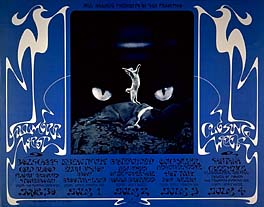
I’ve covered a fair number of murders in my time, including the infamous Nicole Brown Simpson-Ron Goldman double homicide and subsequent trials, but Lindsey Bonistall was different than all of them.
Lindsey was a 20-year-old sophomore at the University of Delaware. In a chilling instance of serendipity, she sat right in front of me when I guest lectured a journalism class at the university in late April of last year. Seventy-two hours later -- one year ago on Monday -- Lindsey was raped and strangled by a man who broke into her off-campus apartment and then set a fire to cover his tracks.
Few of the students that I lectured that afternoon seemed particularly engaged. It was gloriously sunny and most of their young minds were elsewhere, or they were busy surreptitiously text messaging on their cell phones. But I did notice Lindsey, who was attentive and took down my pearls of wisdom in a notebook. I learned later that her goal in life was to write “with purpose and passion,” as her father put it. I had told her classmates the same thing in sharing my blunt mantra for aspiring journos:
If you don't have purpose, passion and an insatiable curiosity, don't waste your time in journalism, because you'll just be wasting my time as a reader.
I did not realize that Lindsey was who she was until her photograph appeared with a newspaper story two days after her murder. I had a little boo-hoo when I made the connection that the young woman looking up at me from the paper was the same person. My tears were both for Lindsey and because I have a daughter the same age who also lives in an off-campus apartment, although at a faraway university.
Thank you with bearing with me, because I’m finally going to get to the point.
From all accounts, Lindsey was vivacious, had many friends and was a hard worker, but in the year since she left this mortal coil, she has accomplished more than she ever had been able to in her short life.
Lindsey was from White Plains in Westchester County, New York, which has sent many students to the University of Delaware over the years. Her parents, Kathleen and Mark Bonistall, could have dried their own tears and gone back to their daily routine after the funeral, but they have turned her passing into a crusade.
Kathleen and Mark are not interested in seeing Lindsey’s assailant fry. In fact, they are against the death penalty, which is what her shiftless, drug-abusing murderer likely faces upon conviction and many people no doubt believe he deserves.
No, the Bonistalls’ crusade is to remember Lindsey by helping others learn how they can live safer lives and to make sure that the university and Newark, the town in which it is situated, do their part.
(I indirectly played a role in the latter effort with a well timed interview with a local TV network news affiliate and well placed op-ed piece in the same newspaper that covered Lindsey’s murder. I’m told that both rattled some cages. My piece was headlined “Newark Hasn’t Faced It’s Ugly Reality,” a reference to the fact that Lindsey’s murder was only the latest, although certainly the most awful, crime in a wave of violent home invasions, muggings and other crimes that I believed had left town and campus police befuddled. I said much the same thing in the TV interview, which was taped beneath the boarded up windows of Lindsey’s apartment.)
As a result of the encouragement of Kathleen and Mark Bonistall, their family and Lindsey's friends:
* The campus police have expanded their off-campus escort program. The number of rides given has doubled and the program may be expanded from three weekend days to seven.
* Five new officers have been added to the town police force, and there are said to be more foot patrols, although I see no evidence of that, which is unfortunate because there may be no more effective deterrent to crime than the visibility of officers walking a beat.
* The Newark rental market has gone through a welcome upheaval because of safety concerns of potential renters. Some landlords have installed locks on windows, improved lighting and made other safety-related upgrades, and grant money has been made available to defray costs.
* A program to inspect off-campus housing has been instituted. Certified “safe” rentals will be posted on a new Web site.
The Bonistall family, with help and support from Lindsey’s friends, have created a group called PEACE OUTside Campus in conjunction with the Lindsey M. Bonistall Foundation. There are chapters at the University of Delaware and University of Kentucky, and they plan to go national with their campaign to make campus and college communities safety.
Nothing is going to bring Lindsey back, but Newark today arguably is a safer town and more like its once tranquil self because of Lindsey Bonistall, her family and friends. Bless their hearts.
HOW YOU CAN GET INVOLVED
There will be a memorial service for Lindsey Bonistall at 2:30 p.m. on Saturday, May 6 on the Green on the University of Delaware campus.
Go here for a
link to PEACE OUTside Campus and the Lindsey M. Bonistall Foundation.
To read a poem by Lindsey and a message from her family, go
here. An obituary on her is
here. And
here is information on a scholarship fund established in her memory.


















